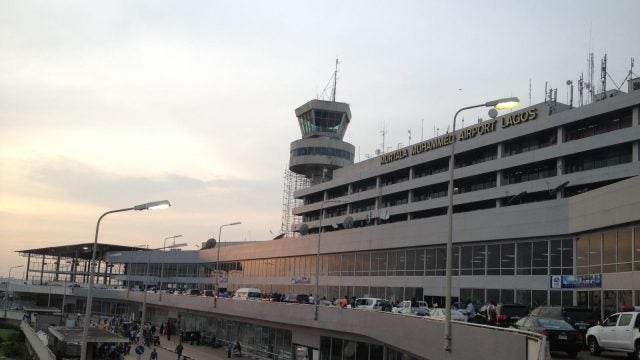Title: Domein Verklaring: Colonial Legal Legacies and Community Access to Land in Indonesia
In 1870, the Dutch colonial government established the principle of domein verklaring (free state domain) in its East Indies colony when it enacted agrarian laws to promote private investment. The now-independent Indonesian nation is still trying to resolve the principle’s implications for community access to land, which threaten the long-term sustainability of livelihoods across the country. Further legal recognition of pre-existing customary rights over land is required to prevent exacerbating the marginalization of rural community interests.
Exactly 150 years since the passing of transformative agrarian laws by the Dutch colonial government in 1870, the now-independent Republic of Indonesia is still grappling with some of the implications of their passage. Most centrally, the question of where state claims over land end and community claims begin remains fundamentally unresolved. This question affects the livelihood options of millions of households in the world’s fourth most populous nation.
In 1830, the Netherlands East Indies formally adopted a policy of cultuurstelsel, known in Indonesia today simply as the “forced cultivation system,” whereby peasants across Java and some other pockets of the outer islands were compelled to deliver commodities such as coffee, sugar, and indigo to government-owned warehouses. It was a state-managed system said to protect the unprepared peasants from the ravages of unbridled capitalism. In practice, it was cruelly exploitative and generated a fiscal windfall for the Netherlands at the expense of just development in the colony.
As criticism of cultuurstelsel mounted, reforms were urgently needed, and the colonial response was to remove government compulsion and allow free enterprise to flourish. To do so, however, it was considered necessary to create conditions that would attract investment by clarifying basic property rights—especially those over land. The Agrarian Laws of 1870 were the key legal instrument to achieve this, with their embedded principle of domein verklaring (free state domain). This was the assumption that any land unencumbered by specifically-designated European or indigenous rights was automatically considered the property of the state. As such, it could be sold or leased to private interests at its discretion.
These legal reforms prompted a flurry of European investment in large-scale commercial plantations of commodities such as coffee, tea, rubber, and sugar, many of them on long-term leases issued on so-called “wasteland” based on the domein verklaring principle. The economy boomed, but the community’s right to avail (hak ulayat) over uncultivated customary lands was widely disregarded.
It is true that towards the end of the colonial period, recognition of adat (customary) law increased in the Indies due largely to the work of lawyers such as Cornelis van Vollenhoven from Leiden University. Somewhat ironically, however, customary rights received further setbacks following Indonesian independence. Article 33 of the Indonesian Constitution stipulates that the earth, water, and natural resources contained within the territory are to be controlled (dikuasai) by the state. As a result, the Indonesian state has often treated hak ulayat as falling within such state control.
The 1960 Basic Agrarian Law (BAL), drawn up at a time when Indonesia’s first president Sukarno was leaning towards a more radical socialist path for Indonesia, further entrenched the centrality of the state. Despite Article 5 of the BAL ostensibly asserting the law’s foundations in adat, the law fundamentally adopts a system of land rights, inherited from the Napoleonic civil codes of continental Europe, that weakened pre-existing communal rights such as hak ulayat and strengthened the state right of control
An even more audacious land claim by the state was implemented soon after the rise of Suharto’s New Order regime in 1967 when the Basic Forestry Law was promulgated. The law determined that designated forestry zones (kawasan hutan) would be controlled by the government as state forests (hutan negara). In 2018, this meant that an estimated sixty-three percent of Indonesia’s land area was controlled by the state, which has used this claim to directly allocate numerous logging concessions and to indirectly allocate commercial plantation leases. It needs to be highlighted that, according to the State Forestry Department itself, only thirty-seven percent of this area is actually covered by primary forest, and much of the remainder is either non-forest or planted with various tree crops, some of which is claimed by communities as hak ulayat.
Despite a new land law being discussed in the Indonesian parliament since 2014, the 1960 law remains in place. Indeed, a 2019 draft of the proposed land law has been controversial, with the Indonesian National Human Rights Commission alleging that the draft contains articles that violate community rights by again strengthening the colonial concept of domein verklaring. The draft further included articles that empowered large corporate leaseholders through longer-term leases, whilst criminalizing community resistance to land appropriations. Such provisions would appear to be retrogressive, and the draft was formally withdrawn from the legislative agenda in July this year.
Legal recognition of customary land rights has, in fact, been increasing in Indonesia since the reformasi movement that brought an end to the Suharto dictatorship in 1998. For the first time since independence, a 1999 Ministerial Regulation contained procedures for recognising adat law communities and their customary rights on non-forest lands. Shortly after, a 2001 Parliamentary Decree on Agrarian Reform determined that customary adat rights must be recognised, respected, and protected, supporting an amendment to the constitution that recognised the rights of customary law communities. Later on, a series of rulings by Indonesia’s Constitutional Court in 2011 and 2012 brought the Forestry Department’s presumed exclusive claim over the forestry zone into question, opening the way for recognition of adat claims within it.
However, the overall effect of the increasing legal recognition of adat since reformasi has been somewhat contradictory and has been associated with both an enhanced community capacity to resist dispossession along with multiple instances of local elite capture and further empowerment of the state. As the interests of customary elites and local state actors have increasingly aligned, legal reforms must tread carefully to avoid the unintended exploitation of marginalised members within customary communities by elites.
These legal debates have enormous contemporary importance. The past seventy years have been witness to a process whereby the area held under de facto customary practices has gradually declined. This has occurred as the area of land allocated to companies for commercial plantations has expanded greatly. While data regarding the location and extent of plantation leases is notoriously difficult to access, the formally reported area of land actually planted with oil palm by private companies increased from 2.4 million hectares in 2000 to 6.4 million hectares in 2018. As a result, less and less land is available for community access and smallholder livelihoods.
The modern Indonesian state asserts, naturally enough, that state domain rights are held on behalf of the citizenry, and that they are used for the benefit of the people and the nation. In practice, however, a commitment to achieving development through economic expansion justifies state allocation of land to corporate interests as being in the “national interest.” Sometimes this may be true, but often the result is the marginalization of community interests.
The Indonesian development experience over the past half-century has indeed been mostly positive, with significant improvements in education, health, life expectancy, and poverty alleviation. Fewer and fewer people rely on agriculture as their primary source of income—a share that has declined from fifty-five percent of the workforce in the 1980s to thirty percent today. Absolute numbers of farmers were also relatively stable (at around forty million workers) between 1990 and 2010, after which they have actually declined to thirty-seven million in 2019, although the COVID-19 crisis appears likely to increase this number again.
These trends, however, belie another reality. The number of “agricultural households,” defined as those engaged in farming, forestry, or fishing activities—even as a secondary source of income—has not declined quite as rapidly. Forty percent of all Indonesian households still maintain a foothold in small-scale agricultural production for at least part of their income. Many Indonesians look to agriculture for livelihood security in times of personal or economy-wide stress and are understandably reluctant to relinquish customary rights to land. This safety net role was evident when the Asian financial crisis led to a massive contraction of GDP by thirteen percent in 1998, shedding thousands of urban jobs in manufacturing and services, with many displaced Indonesians moving back to agriculture to survive. Production of food and cash crops and access to forests and marine resources appear to be providing similar support roles as COVID 19 devastates the economy and Indonesians are unable to rely on a still underdeveloped social protection system.
Farming may no longer be considered a preferred pathway to get rich in Indonesia, but it often provides a vital livelihood backstop. In addition to this economic function, access to ancestral territories also continues to provide social and cultural meaning to the lives of many Indonesians today, as a site for important life events such as weddings and funerals and for asserting cultural identity in the multi-ethnic nation.
The ongoing encroachment of commercial plantation leases, logging permits, mining contracts of work, and infrastructure development on customary lands has been historically justified by a concept of “free state domain” and often undertaken in the name of “national interest.” As such, it seems unlikely that the 150-year contest between state and community claims over land will be definitively resolved any time soon. In itself, this may not necessarily be a bad thing, as this is a delicate legal situation that requires patience and care. Indonesia should continue its experimentation with recognition of customary tenure while avoid making hasty legal decisions in an attempt to attract short-term investment. The unintended consequences could be to undermine the long-term sustainability of livelihoods and contribute to the degradation of local cultures.
. . .
Jeffrey Neilson is an Associate Professor in Geography and the Indonesia Country Coordinator at the Sydney Southeast Asia Centre at the University of Sydney. He has worked and conducted research in rural Indonesia since 1998, where he examines processes of agrarian change and economic development. His research is published in journals such as The Journal of Economic Geography, World Development, Journal of Rural Studies, and The Review of International Political Economy. He is currently working on a research monograph that explores the importance of land access and the continued resonance of “fortress farming” strategies within the livelihoods of contemporary coffee-growing households across Indonesia.
Recommended Articles

Africa accounts for approximately two percent of global air travel. Given the continent’s vast size and large distances between major trade hubs, enhancing intra-African air connectivity will be…

An estimated 7.9 million Venezuelans migrated abroad for the long term under President Nicolás Maduro’s rule as Venezuela’s political, economic, and social crises have deepened. Alongside rising Venezuelan migration, migrants…

Amid stalled U.S. federal climate engagement and intensifying transatlantic climate risks, subnational diplomacy has emerged as a resilient avenue for cooperation. This article proposes a Transatlantic Subnational Resilience Framework (TSRF)…